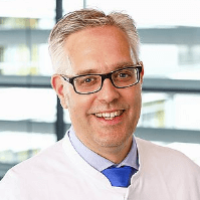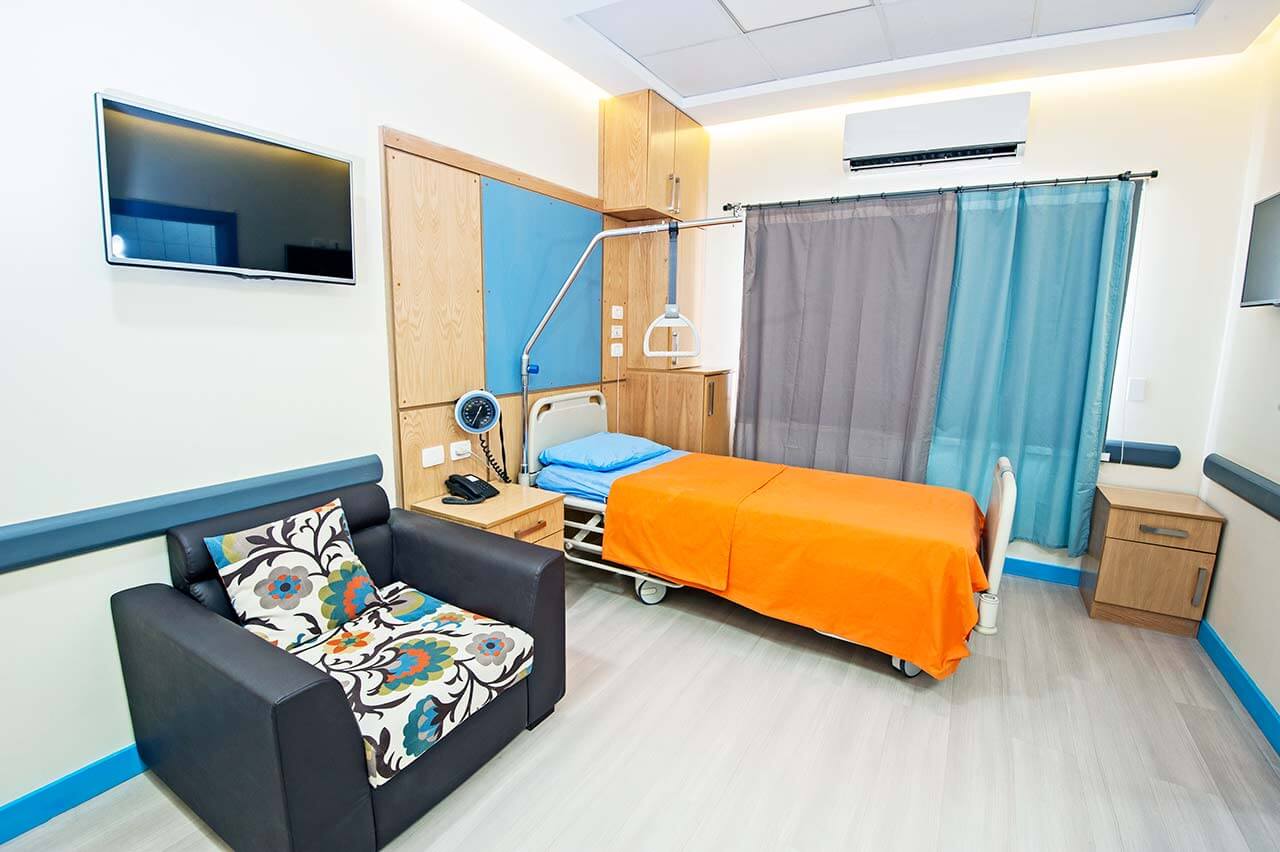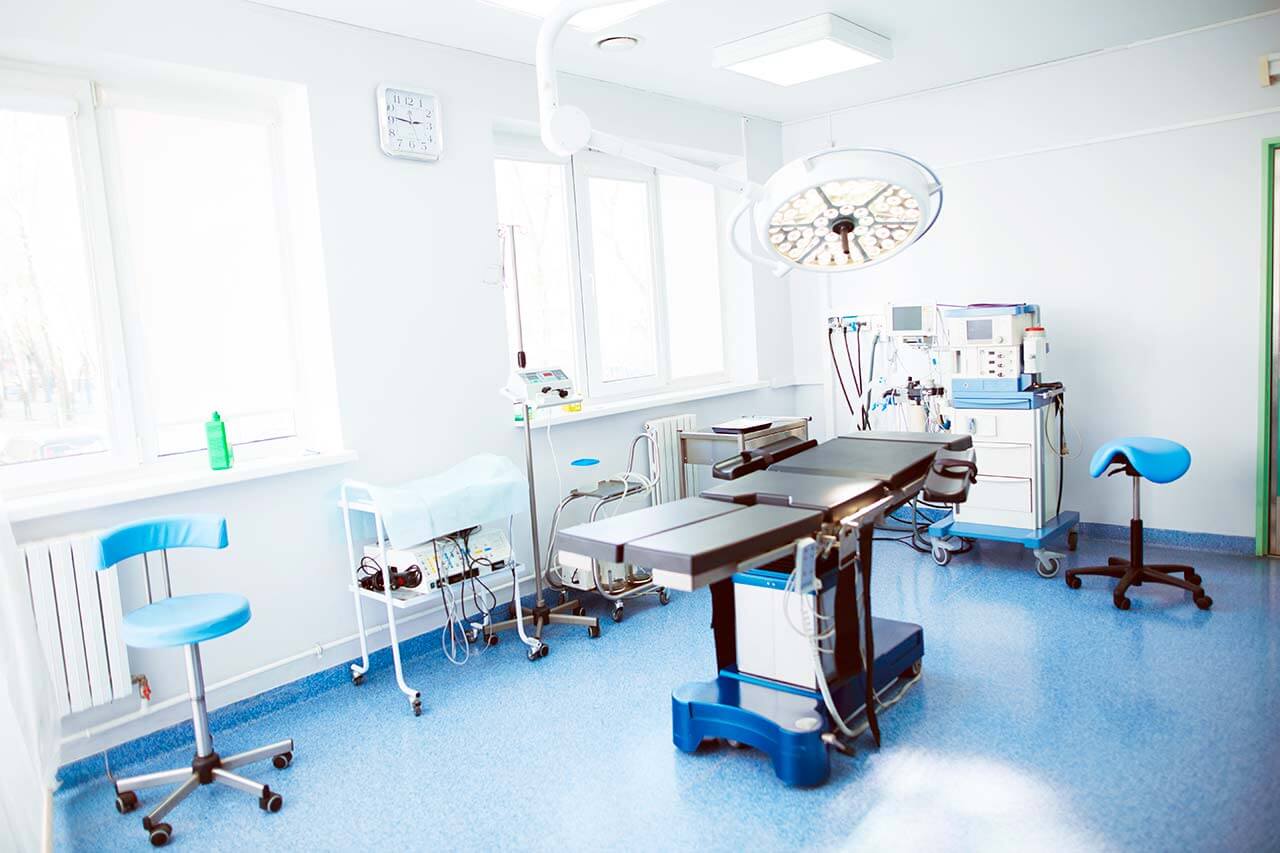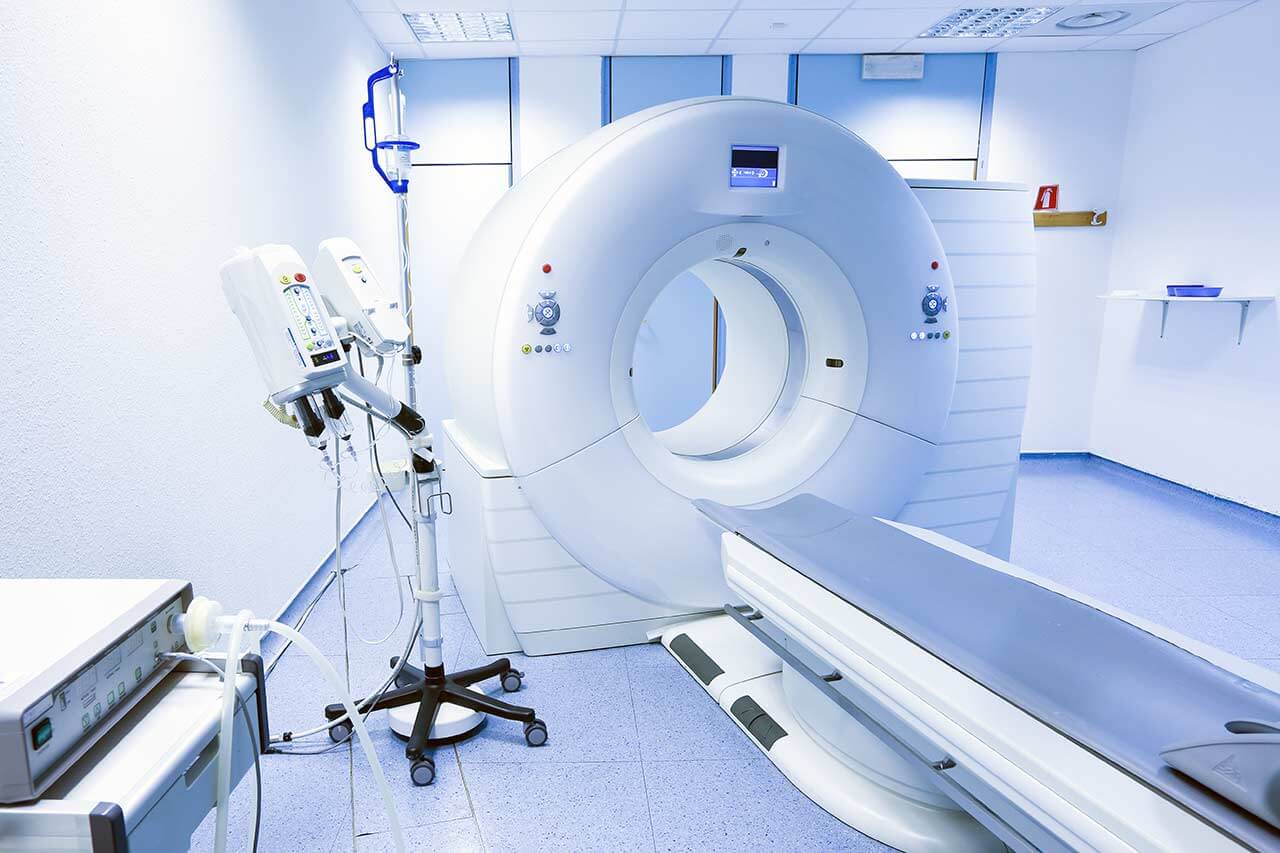
The program includes:
- Initial presentation in the clinic
- clinical history taking
- review of medical records
- physical examination
- laboratory tests:
- complete blood count
- biochemical analysis of blood
- inflammation indicators (CRP, ESR)
- immune status (IgE)
- differential diagnosis of other diseases of the skin
- skin scratch/prick tests
- consultation of related specialists
- symptomatic specific treatment
- the cost of essential medicines and materials
- nursing services
- control examinations
- full hospital accommodation
- developing of further guidance
Required documents
- Medical records
- Photo of the affected body regions
Service
You may also book:
 BookingHealth Price from:
BookingHealth Price from:
About the department
The Department of Dermatology, Allergology and Phlebology at the Municipal Hospital Karlsruhe provides modern diagnostics and effective treatment of various skin diseases, including allergic reactions, and medical care for patients with venous diseases. The priority areas of the department's clinical practice include the treatment of benign and malignant skin tumors, psoriasis, atopic dermatitis, bullous dermatoses, infectious skin lesions, and various allergic diseases, including food, drug, and insect venom allergies. The doctors of the medical facility have a vast arsenal of conservative and surgical treatment methods that allow them to achieve excellent therapeutic results. The department is headed by Prof. Dr. med. Claus-Detlev Klemke.
With an annual number of more than 4,000 surgical interventions of varying complexity, the department's specialists have exceptional qualifications for effective surgical treatment, while a satisfactory aesthetic outcome also plays an important role. The department annually admits more than 1,800 inpatients and about 11,500 outpatients. The department has 33 beds for the hospitalization of its patients.
The department offers the services of an advanced Skin Cancer Center, which provides diagnostics and treatment for patients with skin tumors. The essential area of work is skin cancer treatment – the center has been certified following the standards of the German Cancer Society. The center's doctors have long experience in the diagnostics, treatment and follow-up monitoring of patients with skin tumors: melanomas, basal cell carcinomas, spinaliomas, and rare skin cancers, including angiosarcomas, atypical fibroxanthomas, dermatofibrosarcoma protuberans, skin sarcomas and Merkel cell carcinomas. Doctors perform an interventional procedure to take biological material for a histological examination to determine a specific type of tumor. Advanced tumors may require imaging tests (in the Department of Interventional Radiology and the Department of Nuclear Medicine). As for the therapy, the first-line treatment is usually surgical removal of the neoplasm, followed by plastic reconstruction surgery, if required. The operation can be supplemented with cryotherapy, immunotherapy, laser therapy, photodynamic therapy, radiation therapy, chemotherapy, targeted therapy, etc. A particular complex of therapeutic measures is prescribed by the patient's attending physician, based on his diagnostics and clinical data.
The department's team of dermatologists also provides conservative treatment of benign skin pathologies: psoriasis, atopic dermatitis and various types of eczema, bullous dermatoses, erysipelas, herpes zoster, acne, leg ulcers and other diseases. These diseases can be treated with drugs, photodynamic therapy, phototherapy, laser procedures and other methods.
Allergology is especially focused on treating food, drug, and insect venom allergies. The diagnostic stage includes provocation tests, prick tests, epicutaneous and intracutaneous skin tests, etc. Allergic manifestations on the skin can be eliminated with medications (ointments, gels and creams for topical application, pills, etc.), and allergen-specific immunotherapy (hyposensitization).
The department's doctors also admit patients with venous diseases. Particular attention is paid to the treatment of varicose veins and deep vein thrombosis. A diagnosis is usually made with Doppler sonography and color duplex sonography. Varicose veins can be eliminated with methods such as stripping, laser treatment, sclerotherapy, phlebectomy, and compression therapy. The treatment regimen for deep vein thrombosis usually includes anticoagulant drugs and compression therapy.
The department's range of medical services includes:
- Dermatology
- Diagnostics and treatment of malignant skin diseases
- Diagnostics
- Dermatoscopy
- Dermatohistological and immunohistological tests
- Molecular diagnostics (BRAF, NRAS and c-Kit mutations, etc.)
- Skin and lymph node ultrasound scanning
- Sentinel lymph node biopsy
- Tumor marker monitoring
- Imaging tests (ultrasound, X-ray, PET-CT, MRI, CT, and scintigraphy)
- Treatment
- Surgical treatment: tumor resection, plastic reconstructive surgery, and intraoperative diagnostics after an express biopsy
- Local therapy: cryotherapy and immunotherapy
- Non-surgical treatment: photodynamic therapy, laser therapy, extracorporeal photopheresis, and radiation therapy
- Drug therapy: Immunotherapy/antibody therapy (for example, interferon alfa, PD-1 inhibitors and CTLA4-AK inhibitors), targeted therapy (for example, BRAF inhibitors and MEK inhibitors), and chemotherapy
- Diagnostics
- Diagnostics and treatment of benign skin diseases
- Conservative treatment methods
- Drug therapy: topical therapy with ointments, gels and creams, as well as the intake of pills
- Photodynamic therapy
- Laser therapy
- Conservative treatment methods
- Diagnostics and treatment of malignant skin diseases
- Allergology
- Diagnostics and treatment of food, drug and insect venom allergies
- Diagnostics
- Provocation tests
- Prick tests
- Epicutaneous and intracutaneous skin tests
- Treatment
- Medicines (ointments, gels and creams for topical application, pills)
- Allergen-specific immunotherapy (hyposensitization)
- Diagnostics
- Diagnostics and treatment of food, drug and insect venom allergies
- Phlebology
- Diagnostics
- Dopplerography
- Color duplex sonography
- Treatment
- Anticoagulant therapy
- Stripping
- Laser treatment
- Sclerotherapy
- Phlebectomy
- Compression therapy
- Diagnostics
- Other medical services
Curriculum vitae
In May 2015, Prof. Dr. med. Claus-Detlev Klemke headed the Department of Dermatology, Allergology and Phlebology at the Municipal Hospital Karlsruhe. The doctor received his medical education in Berlin, Minnesota, London and Wuerzburg. He passed his first state examination at the University of Wuerzburg. The doctor had his professional training in Dermatology at the Campus Benjamin Franklin in Berlin, at the German Cancer Research Center in Heidelberg, and at the University Hospital Mannheim. He was habilitated in 2010. The doctor received his Extraordinary Professorship in 2013.
Photo of the doctor: (c) Städtische Klinikum Karlsruhe
About hospital
The Municipal Hospital Karlsruhe is a modern maximum care medical facility, which combines a long tradition and the advanced achievements of modern medicine. The hospital operates on the basis of the University of Freiburg, so scientific innovations in the field of diagnostics and treatment are continuously introduced into practice here. The hospital presents almost all areas of modern medicine, including many medical services for young patients.
A highly qualified and experienced team of more than 4,500 employees provides impeccable medical care. The medical facility has 1,571 beds for the hospitalization of its patients. The hospital admits more than 63,000 inpatients and about 186,000 outpatients annually. A large number of patients wishing to receive medical care in the hospital speak for themselves and are a confirmation of the exceptional service, as well as the effectiveness of the treatment provided.
The quality management system of the hospital's medical care is certified in accordance with the DIN EN ISO 9001 standards. Since 2016, the hospital has implemented a regular quality control in compliance with the strict standards of the Initiative Quality Medicine (IQM). In addition, almost all departments of the hospital have numerous certificates in their areas of specialization, including certificates from the German Cancer Society (DKG), the German Society for General and Visceral Surgery (DGAV), the German Cardiac Society (DGK), the German Diabetes Society (DDG), the German Society of Nephrology (DGN), the German Trauma Society (DGU), etc.
The main value of the hospital's staff is the health and satisfaction of their patients, so a respect and a humane attitude towards each patient remain priorities. The doctors and nursing staff support each patient in every possible way on their path to recovery. The specialists also strive to perform the most sparing, but at the same time the most effective and safe treatment.
Photo: (с) depositphotos
Accommodation in hospital
Patients rooms
The patients of the Municipal Hospital Karlsruhe live in cozy patient rooms with everything necessary for a comfortable stay. Standard patient room furnishing includes an automatically adjustable bed, a bedside table, a TV, and a telephone. The patient rooms have Wi-Fi. Each patient room also has an ensuite bathroom with a shower and a toilet.
The patient rooms in the pediatric departments are specially designed for children, so that young patients feel at home. Children can live in their patient room with one of their parents. There are also special playrooms designed for children.
Meals and Menus
The patients of the hospital are offered tasty and varied three meals a day: breakfast, lunch and dinner. The menu also features dietary meals. The kitchen staff will gladly accept all the individual wishes of patients.
The hospital also has a cozy cafe where one can have a tasty snack, drink tea, coffee and soft drinks.
Further details
Standard rooms include:
Religion
The hospital has two chapels that regularly host Protestant, Catholic, and Ecumenical worship services. A patient can watch the broadcast of the worship on TV channels in his own room, if desired.
Accompanying person
Your accompanying person may stay with you in your patient room or at the hotel of your choice during the inpatient program.
Hotel
You may stay at the hotel of your choice during the outpatient program. Our managers will support you for selecting the best option.





